The first Australian Christmas was a grim and lonely affair
ELEVEN months after settlement, the makeshift NSW colony at Sydney Cove was a crude and lonely collection of huts as convicts and marines marked their first antipodean Christmas.
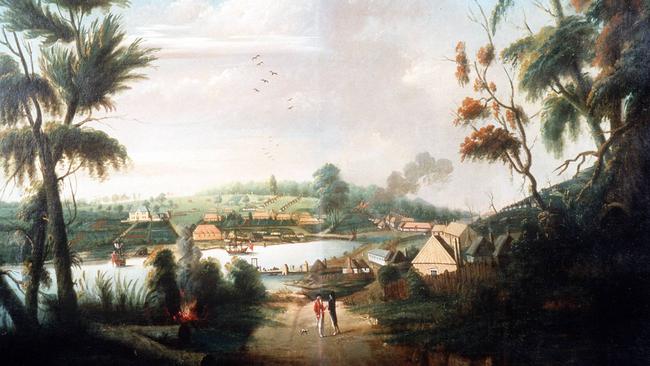
Today in History
Don't miss out on the headlines from Today in History. Followed categories will be added to My News.
ELEVEN months after settlement, the makeshift NSW colony at Sydney Cove was a crude and lonely collection of huts as convicts and marines marked their first antipodean Christmas.
“We now have two streets, if four rows of the most miserable huts you can possibly conceive of deserve that name,” a female convict wrote home to England, describing the Rocks area in November 1788.
“Windows they have none ... so that lattices of twigs are made by our people to supply their places.”
No news, and certainly no gifts or greetings, had reached the colony from London since the First Fleet’s arrival on January 26. To exacerbate the loneliness, only one ship, the small brig Supply, bobbed in the harbour. The last two merchant ships, the Golden Grove and Fishburn, had sailed for England in November, leaving the tiny British settlement of some 1000 convicts and officers stranded at the end of the earth. It had been a tough 11 months, with crops failing and 103 deaths, including nine marines, their wives and children, and 94 convicts and convict children.
So judge advocate Capt David Collins’ report that “Christmas Day was observed with proper ceremony,” grossly overpraised the celebration.
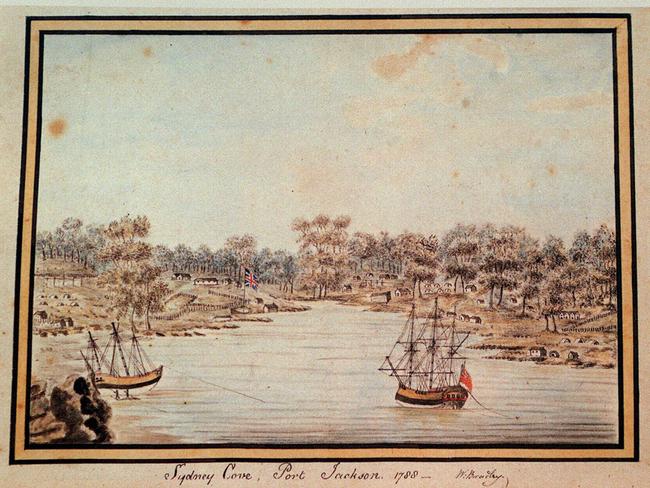
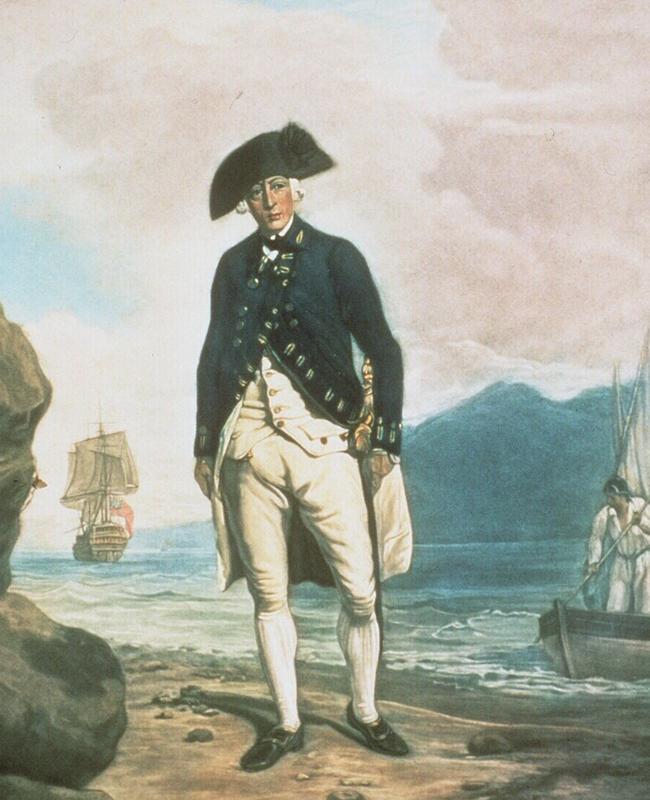
“Mr Johnson preached a sermon adapted to the occasion ... and the major part of the officers of the settlement were afterward entertained at dinner by the Governor,” Collins noted. At the open-air service celebrated under trees soon after sunrise on Thursday, December 25, 1788, pastor Richard Johnson also conducted a wedding and baptised infant Sarah Eggleton, daughter of convicts William Eggleton and Mary Dickenson. They were one of 15 couples married in a joint ceremony weeks after the First Fleet’s arrival; Sarah was one of 33 babies already
born in the colony.
But the religious Christmas service was probably as foreign to most convicts as their new home in the “poor & barren & rocky” country described by Johnson.
Most convicts were described as “practically pagans”, with probably half not attending a church service for at least five years before they became prisoners. Many prisoners were from poor London suburbs and cities, where churches had little influence on poor residents, and offered them little in return. Others had likely worked as household servants, and would have worked on Christmas Day.
In November, Johnson had also written to a friend in England that inhabitants of Sydney Cove would prefer the erection of a tavern or a brothel than a church: “They prefer their Lust before their Souls, yea, most of them will sell their souls for a Glass of Grogg, so blind, so foolish, so hardened are they.”
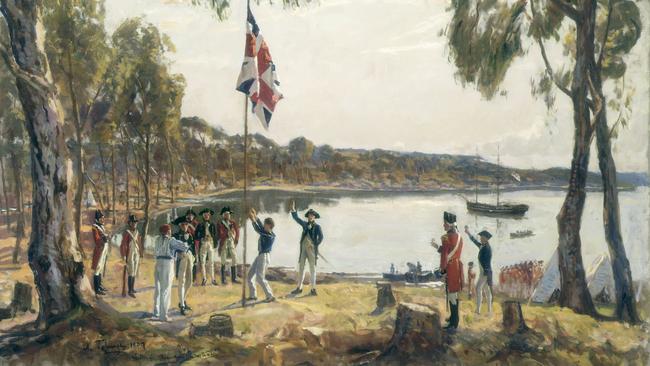
So Johnson preached his Christmas sermon as a “field Preacher. No Church is yet begun of, & I am afraid scarcely thought of. Other things seem to be of greater Notice & Concern.”
Two convicts had celebrated Christmas Eve in sexual congress, which also secured them a Christmas gift, as noted by an observer: “Amelia Levy and Elizabeth Fowles spent the night with Corporal Plowman and Corporal Winstead, in return for a shirt each.”
Their action perhaps also reinforced Johnson’s observation in November that “all almost, with but few exceptions, are heartily sick of the expedition, & wish themselves back safe
in old England”.
Collins’ account of Christmas lunch with Governor Phillip was somewhat grim: after toasting “King George 3rd and his family”, Collins continued: “Concerning that dinner,
the least said the more generosity.”
Seed wheat delivered by First Fleet ships had been destroyed by weevil, livestock segregated for breeding, and “the strictest economy in the consumption of stores was observed,
as the little settlement was entirely dependent on England”.
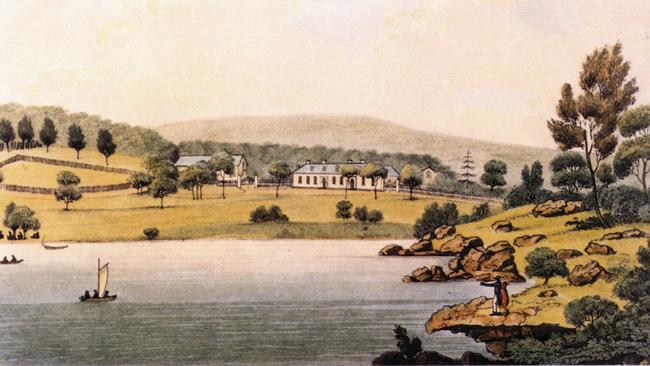
Convict rations were much more meagre, with Christmas lunch likely comprising the regular menu of bread, salted beef or pork, perhaps fish, and pease, or yellow peas.
The only evident goodwill displayed on the day was extended to convict Michael Dennison, who had stolen a pound of flour from Martha Pugh. Dennison was sentenced to 200 lashes by the whip, but being Christmas, only 150 lashes were delivered.
Circumstances had improved by Christmas 1789, when Phillip served his officers and guests a “very fine” roast turtle, delivered by HMS Supply from Lord Howe Island. Sides included a 26-pound cabbage, cultivated by Phillip’s personal assistant Henry Dodd, using generous applications of cow manure from the settlement cattle enclosure. Among the Governor’s guests was Bennelong, a young aboriginal man described as a “merry fellow with above average intelligence”.
But convict hardships continued: they were then on reduced rations of salt pork, flour and pease.
Originally published as The first Australian Christmas was a grim and lonely affair


